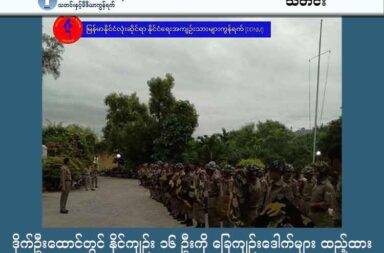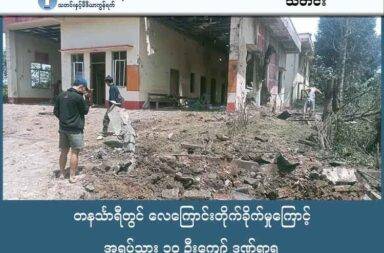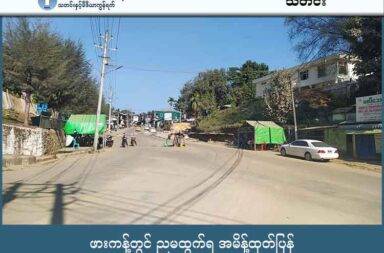Mon MPs Takes Issue with Gov’t Restrictions on Questions
By NETWORK MEDIA GROUP (NMG)
Thursday, September 26, 2019
Members of Mon State’s parliament are unhappy with the state government’s decision to limit the number of questions it will answer during the current session of the state legislature to just half of the total that it has received from lawmakers.
In a letter sent to the chairperson of the state parliament on Wednesday, Chief Minister Dr. Aye Zan said that the government would only be able to answer 25 of the 49 questions it had received ahead of the 14th session of parliament, which began on September 19.
According to the parliament’s chairperson, (Daw) Tin Tin Ei, the chief minister said he would answer the remaining questions during the next session.
The reason the chief minister gave for limiting the number of questions that could be answered was that some had been submitted too late. According to rules governing parliamentary procedures, MPs are supposed to submit written and signed questions at least 10 days before the start of a new session of the state legislature.
However, Tin Tin Ei said that this rule applies only to questions to be addressed in parliament, not to those to be answered by the government.
“The Mon State Parliament’s rules do not state a due date by which questions must be submitted to the government. No deadline is imposed by law,” she told NMG, adding that the government had rejected efforts by parliament to change the dates of the current session so that all questions could be answered.
In the past, government officials provided MPs with written answers to their questions. However, that practice has been suspended since the 13th session of parliament.
During that session, the chief minister also sent a letter to parliament to block questions from Aung Naing Oo, the MP for Chaung Sone Township. That ban was later lifted.
Many parliamentarians have criticized the government for trying to interfere in the parliament’s work. Observers say that the state’s government and parliament lack mutual respect.


